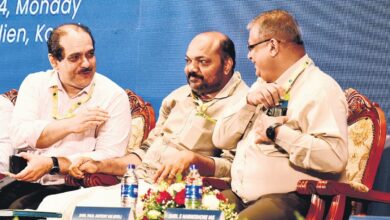
Entrepreneurs have always been agents of change, affecting our lives in ways big and small. But their impact can extend far beyond the products and services they develop. Today, many are translating their own success into positive social influence. Here are three different avenues entrepreneurs are taking to making people’s lives better.
1. Empowering employees
Sherry Deutschmann is a serial entrepreneur, author and dedicated advocate of entrepreneurship. She is the founder and former CEO of LetterLogic, Inc., a company she grew to $40 million and sold in 2016.
“When I became an entrepreneur, I didn’t even know the word,” says Deutschmann. She had moved to Nashville, Tennessee, as a single mom to pursue a career as a singer. Her background included a high school diploma and experience cleaning public bathrooms and homes. Then she landed a job in health care sales and got a glimpse of two things: financial success and the steep business cost of poor service.
“I would sell a new account, and then we would lose that account,” Deutschmann says. “Our service was so bad, and I set out to learn why. We were making simple errors. And I realized that the human error was caused by carelessness, and the carelessness was because my coworkers realized that nobody cared about them.”
When Deutschmann went to her boss with solutions for motivating the employees, he dismissed her ideas. So she started a competitive business in her basement.
“I set up an employee-centric business,” she says. “I paid the employees a real fair living wage, paid for all their health care insurance, helped them buy their first homes. And then, the best business idea I ever had, I gave them 10% of the profit every month.” Deutschmann distributed the profit share evenly across the organization regardless of position, and when the CFO balked, she found a new CFO.
That bold move to profit-sharing led to outstanding service and a company that made the Inc. 5000 list for 10 consecutive years. In 2019, after selling LetterLogic, Deutschmann founded BrainTrust, a company dedicated to helping women entrepreneurs grow their businesses to become financially independent and successful.
“Every month women gather in groups, and they bring all of their problems and their opportunities to the table,” she says. “They help each other, not by giving advice but by sharing their experiences to help others decide what to do.”
A member of the EY Entrepreneurial Winning Women™ Class of 2009, Deutschmann is also an accomplished publisher with a focus on helping underrepresented voices be heard.
2. Harnessing technology for social good
“A lot of communities frankly have just given up because they have such low expectations of how they’re being served by law enforcement,” says Ralph Clark, President and CEO of SoundThinking. “The notion of gun violence is a civil rights issue of our generation.”
SoundThinking is a public safety solutions company dedicated to supporting law enforcement and public safety officials. Using an acoustic technology called ShotSpotter, sensors are able to detect, locate and alert instances of outdoor gunfire within 30 to 45 seconds. The technology is used by more than 150 cities around the country to help police respond more quickly to gunfire.
“The reason this technology is so compelling to police departments is that in some of our most vulnerable communities with persistent gun violence, 911 is called less than 10% of the time,” says Clark, who also is an Entrepreneur Of The Year® 2019 Award winner. “Our founding principle is that technology can be harnessed to create public good.”
Clark believes that data can be a powerful catalyst for social change in communities that struggle with gun violence. When law enforcement officers are armed with information, they are better equipped to build trust and credibility in communities and make a difference in real-life situations. “With good data, they can show up as guardians as opposed to warriors,” Clark says.
SoundThinking is also lending its technologies and launching a nonprofit to detect and deter illegal fish blasting, which is the practice of using an explosive device to kill fish and net them by the thousands. The concussive events cause extreme damage to coral reefs, which the ocean lifecycle depends on. The ripple effect reaches millions of people around the world who rely on a healthy ocean ecosystem for vital needs, including food, jobs and income.
“We are purpose-oriented and purpose-driven as a company,” Clark says. “So we have a duty to do something bigger than ourselves to make a difference.”
3. Nurturing the future: combating childhood hunger
Michelle Tunno Buelow is the founder and CEO of the “buy one, feed one” baby brand Bella Tunno. A member of the EY Entrepreneurial Winning Women Class of 2009, Tunno Buelow was initially driven to social action by her brother’s struggle with drug addiction, but her baby product company called for a different direction. Bella Tunno makes silicone feeding and teething accessories for children, and it donates at least one meal to a disadvantaged household for every product sold. The company has given more than 12 million meals to hungry children.
“In 2014, I came across research that said one in six children in our country goes to bed hungry every night,” Tunno Buelow says. “And when you hear something like that you think, that can’t be right. But if it is right, I’ve got to be a part of the solution. That was that statistic to me. And when I dug deeper, what I discovered was there was a link in food insecurity in infancy and adolescence and addictive behaviors in adulthood. All of a sudden, we could become a brand that shares our mission with our customers with new parents, providing feeding products for their children.”
Now her teenage daughters are making a difference. “From the time they were little, we have wanted them to be informed, empathetic, local citizens,” Tunno Buelow says. Both have launched entrepreneurial organizations to help people in need around the world, proving that social impact can ignite and inspire at any age.
Read More



